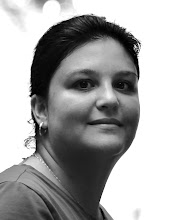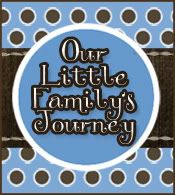So, I've been looking at other blogs specifically on domestic adoption since so many are about international adoption from other countries, and while adoption at all has many of the same challenges to face, international and domestic also have their own sets of issues to examine.
For instance, in domestic adoption currently, most are semi-open or open adoptions meaning that gone are the days of old where you knew no information about the natural parents. In a semi-open adoption you exchange letters and photos through the agency with the natural parents, and know each others first names, but no other identifying information for the most part. Open adoption runs through a range of anywhere in between disclosing indentifying information, addresses, phone numbers, last names, etc., and exchanging letters and photos without the third party of the agency or otherwise, all the way up to having a relationship with the natural family, perhaps even seeing them on a regular basis.
Regardless, the child that you adopt has another family out there, and they are now part of your extended family through your child, and it is your responsibility to foster that so that your child can feel comfortable with where they came from and understand the reasons for adoption. Archie and I feel that this is so important for the child that we will bring home. It is not our biological child, but will be our child in every other way. We want our child to have all of his or her questions answered about their adoption and family that they can. I'm not sure that we can say that we're totally comfortable with having our child's first family present at all occassions, but we are absolutely comfortable exchanging letters and photos, and perhaps even small gifts with them. We both believe that in time by developing a relationship with our child's other family, that we could quite possibly have a more open adoption where our child would be able to see their first family and get to know them.
In international adoption, many times the natural families information isn't disclosed, and there is little to find out about with regards to specific reasons for adoption. But when we met with Catholic Charities, they did explain quite a bit about the main reasons why children are given up for adoption in certain countries, and it was really interesting to hear about. I, like many others, had assumed for instance that China had so many girls available because the boys were more favored and you could only have one child per family. The sons generally take care of the parents when they retire. Well, China has a population of 1.3 billion people. If you live in the city, which about 7 million do, you are allowed one child, and you get a pension for your retirement. If you live in the country (which by the way, they are still referred to as peasants...), which about 6 million do, you are allowed two children, and you do not get a pension. So, the social worker posed the question to us-"So say you live in the country, you already have a daughter, and you have another child, another daughter, what do you do?" My first thought was that they would give her up and try again for a boy. That is possible, but in China, putting your child up for adoption is illegal. Yup, that's right. So what they do is leave their babies, maybe with a note attached about a birthdate, in public places where they know that they will be found and cared for. If even 1% of their population does this, how many children is that in the orphanages available for adoption? You've got it-a lot.
While we're on the topic of orphanages, we'll discuss that because it is something that people adopting internationally need to consider that those of us adopting domestically do not. Children who have been in institutions like that generally have some delays that will require a lot of dedication and possibly services once they get back here to their new homes. This is because there are so many children in the orphanages that try as their caregiver's might, they just can't do everything for all of the children like a parent of a single child or even a few children might be able to do otherwise. Luckily if your child has a 25% or greater delay at least here in MD, they qualify for free services, and the consulatation is free.
Even when you adopt domestically, there are still things that come up. If you have a transracial adoption, people will look at you, and you can just imagine what they are thinking. Some people actually ask you. If you have a child that is the same race, you may still have to field questions, especially if people know you adopted. Some people are curious, some are just nosy, and some just can't keep their comments to themselves. We don't even have a child placed with us yet, and we're getting all kinds of questions and comments. Some are ok to ask, we're pretty open people, but some are just irritating. That said, most people have been really supportive of us.
So, onto the blogs I mentioned.
Production Not Reproduction is a great blog I discovered. She has two children through open domestic adoption, and she covers all topics from parenting, adoption ethics, and transracial adoption, to supporting family members who are adopting, and why open records still matter in open adoption. Her site is chock full of information for everyone from prospective parents all the way to extended family looking for ways to support their loved ones through this process.
life from here: musings from the edge I just started reading this blog tonight, and while the blogger is older than I am, I can identify with her feelings relating to battling infertility while making a family is so easy for others, and finally moving onto adoption. It's funny, reading her posts, I see me in her with the comments she makes and how she feels. Her baby was just born a week and a half ago, and surprisingly enough, she hasn't posted since-she must be very busy adjusting to parenthood!
And finally, one by a firstmom aka birthmom. Not Mother is a blog by a birth mother about her life as a birth mother in an open adoption. Very interesting to read about from the other side of the adoption.
2019 IS GETTING AWAY FROM ME!
6 years ago










No comments:
Post a Comment